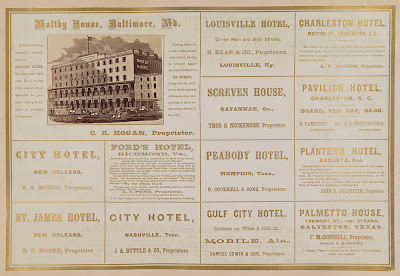They seem to have cut the Overshoppe.com scene from the syndicated version of 30 Rock.
May 15, 2013
Before I got rid of my Maryland accent
May 8, 2013
V-E Day
(Wikipedia) Victory in Europe Day (V-E Day or VE Day) was on May 8, 1945, the date when the World War II Allies formally accepted the unconditional surrender of the armed forces of Nazi Germany and the end of Adolf Hitler's Third Reich. On 30 April Hitler committed suicide during the Battle of Berlin, and so the surrender of Germany was authorized by his replacement, President of Germany Karl Dönitz. The administration headed up by Dönitz was known as the Flensburg government. The act of military surrender was signed on 7 May in Reims, France, and ratified on 8 May in Berlin, Germany. Continued
May 7, 2013
Budget Cuts Hobble Library of Congress
(NYTimes) ... Just as military contractors, air traffic controllers and federal workers are coping with the grim results of a partisan impasse over the federal deficit, the Library of Congress, whose services range from copyrighting written works — whether famous novels or poems scribbled on napkins — to the collection, preservation and digitalization of millions of books, photographs, maps and other materials, faces deep cuts that threaten its historic mission. Continued
May 6, 2013
Battle of Chancellorsville
(Wikipedia) The Battle of Chancellorsville was a major battle of the American Civil War, and the principal engagement of the Chancellorsville Campaign. It was fought from April 30 to May 6, 1863, in Spotsylvania County, Virginia, near the village of Chancellorsville. Two related battles were fought nearby on May 3 in the vicinity of Fredericksburg. The campaign pitted Union Army Maj. Gen. Joseph Hooker's Army of the Potomac against an army less than half its size, Gen. Robert E. Lee's Confederate Army of Northern Virginia. Chancellorsville is known as Lee's "perfect battle" because his risky decision to divide his army in the presence of a much larger enemy force resulted in a significant Confederate victory. Continued
Photo: Roswell K. Bishop of Company I, 123rd New York Infantry Regiment, killed at Chancellorsville (LoC).
May 4, 2013
Let us cross over the river and rest under the shade of the trees
(NYTimes) It was around 9 p.m. on May 2, 1863, during what would later be known as the Battle of Chancellorsville in central Virginia. Gen. Thomas J. “Stonewall” Jackson, with a few aides, was in front of Confederate lines scouting the federal position. The day had been a horrible one; Jackson, a senior general under Robert E. Lee, had attacked the Union’s left flank, demolishing the XI Corps. But the Union troops regrouped and counterattacked, and night fell on a confusing, bloody scene. Thousands were dead; thousands more would die in the coming days.
Jackson had decided to venture forth to see the damage and plan for the next day. Continued
May 1, 2013
Archaeology and forensic anthropology confirm survival cannibalism at Jamestown
Findings were proven through collaborative research efforts by Preservation Virginia's Jamestown Rediscovery Project (archaeology), The Colonial Williamsburg Foundation (historical context) and Smithsonian Institution's National Museum of Natural History (forensic anthropology).
Battle of Crooked Billet
In the skirmish action, British forces under the command of Major John Graves Simcoe launched a surprise attack against Brigadier General John Lacey and three regiments of Pennsylvania militia, who were literally caught sleeping. The British inflicted significant damage, and Lacey and his forces were forced to retreat into neighboring Bucks County. Continued
Subscribe to:
Posts (Atom)











